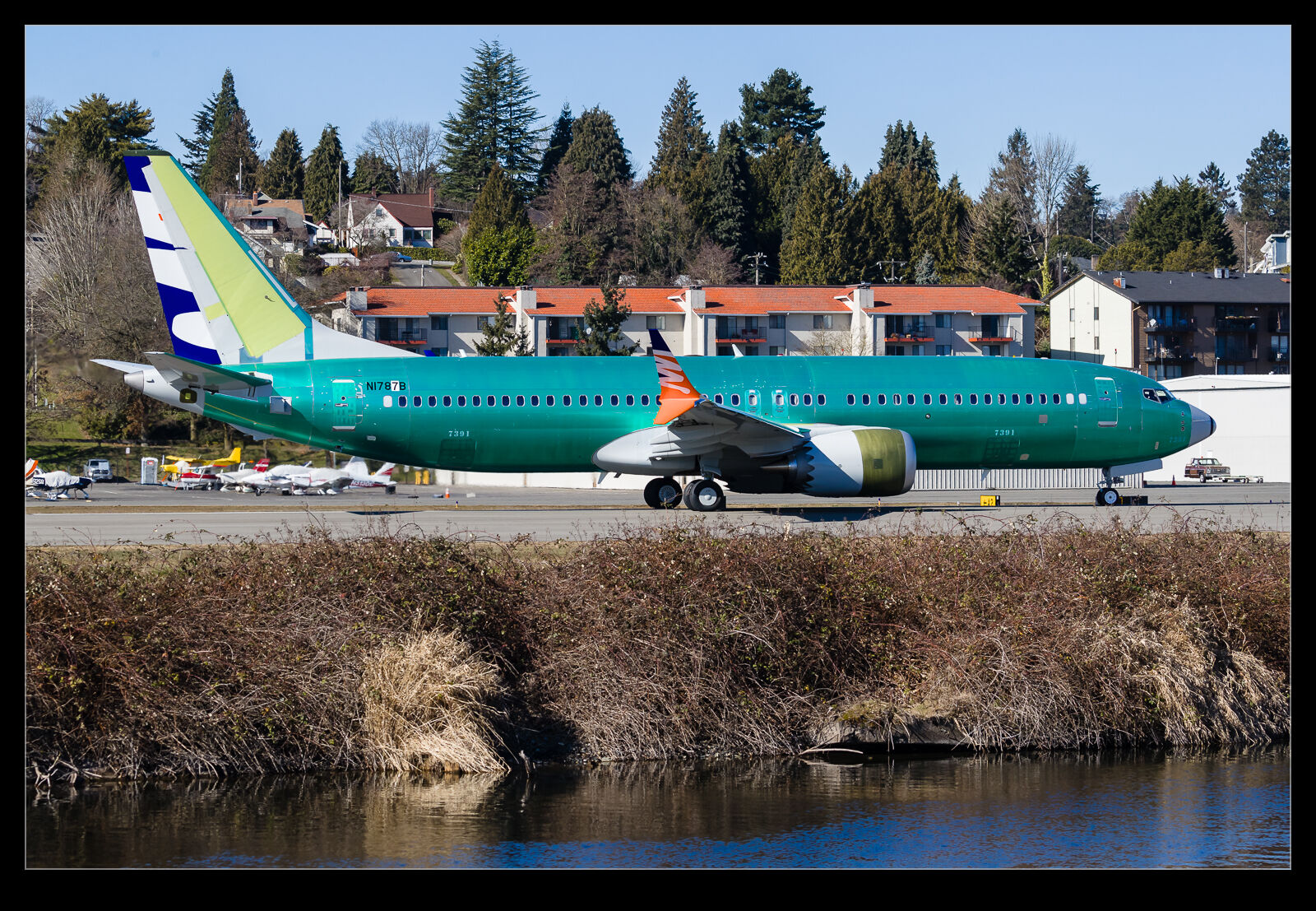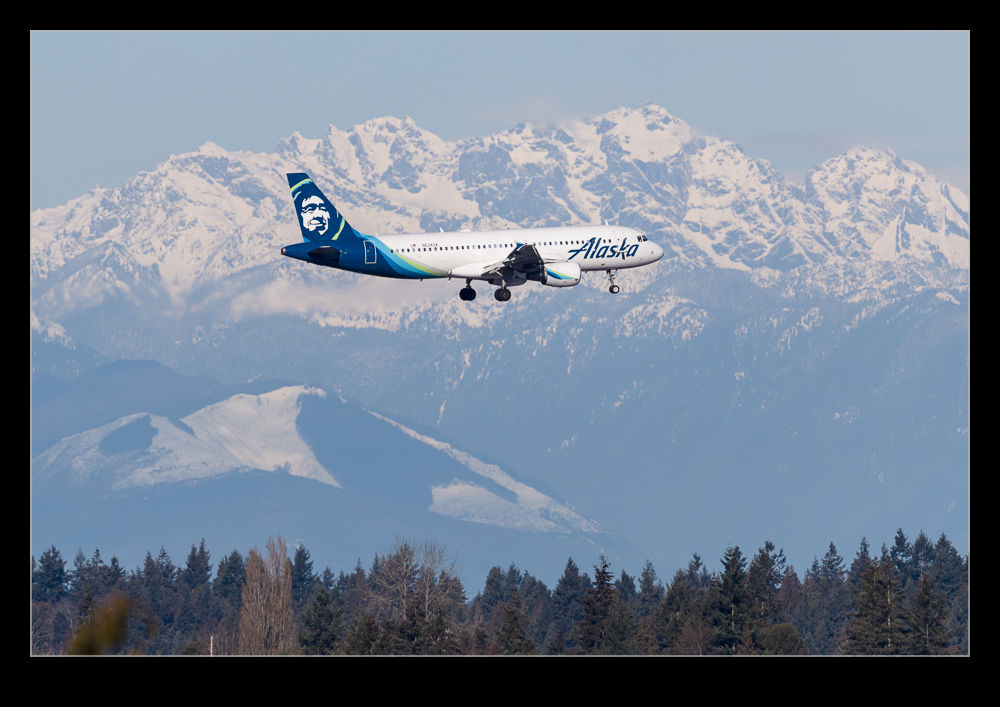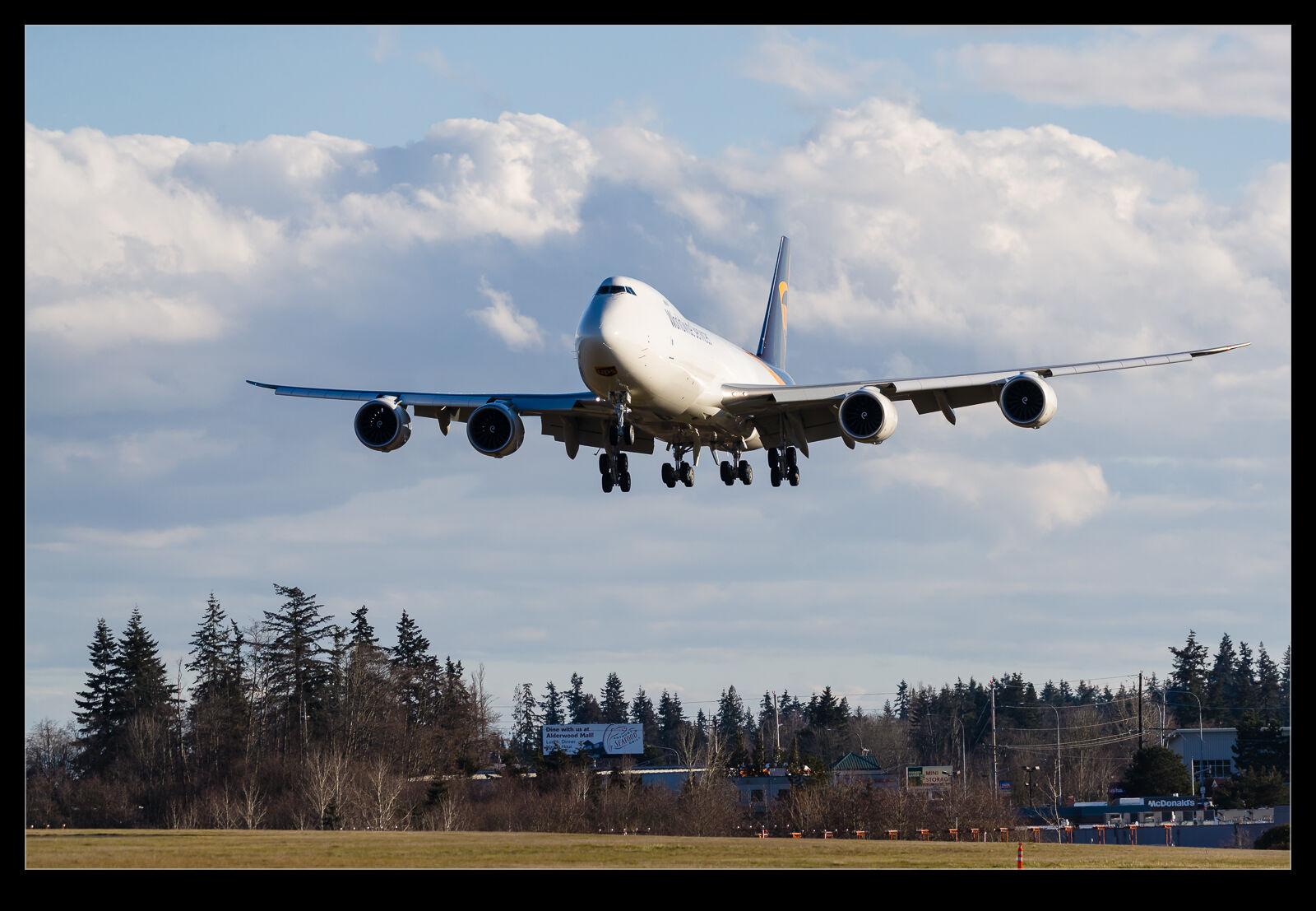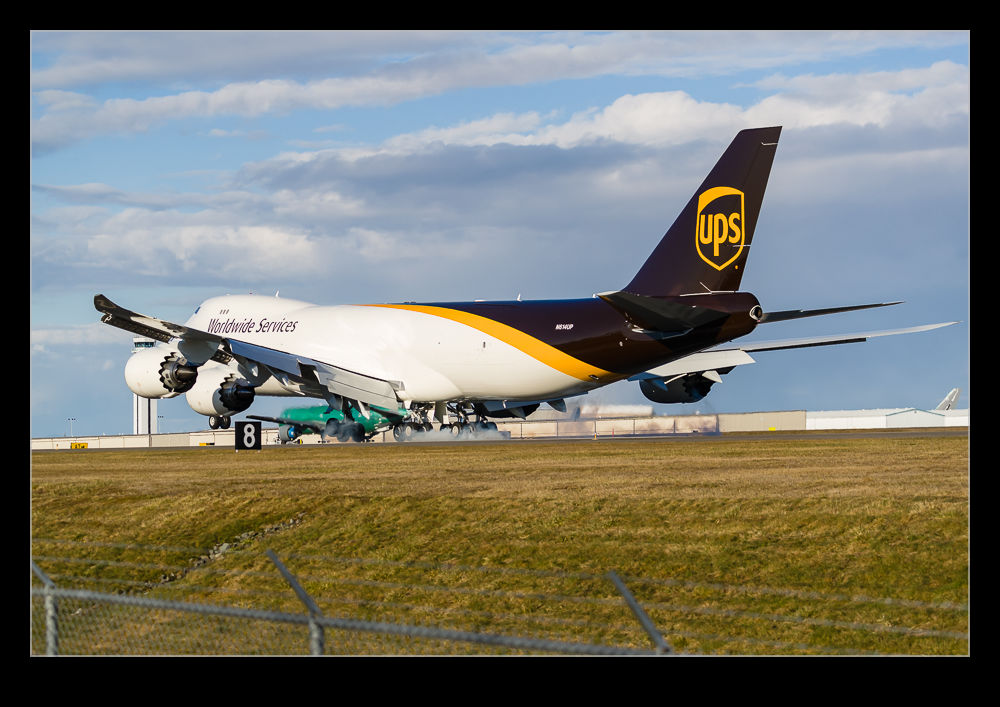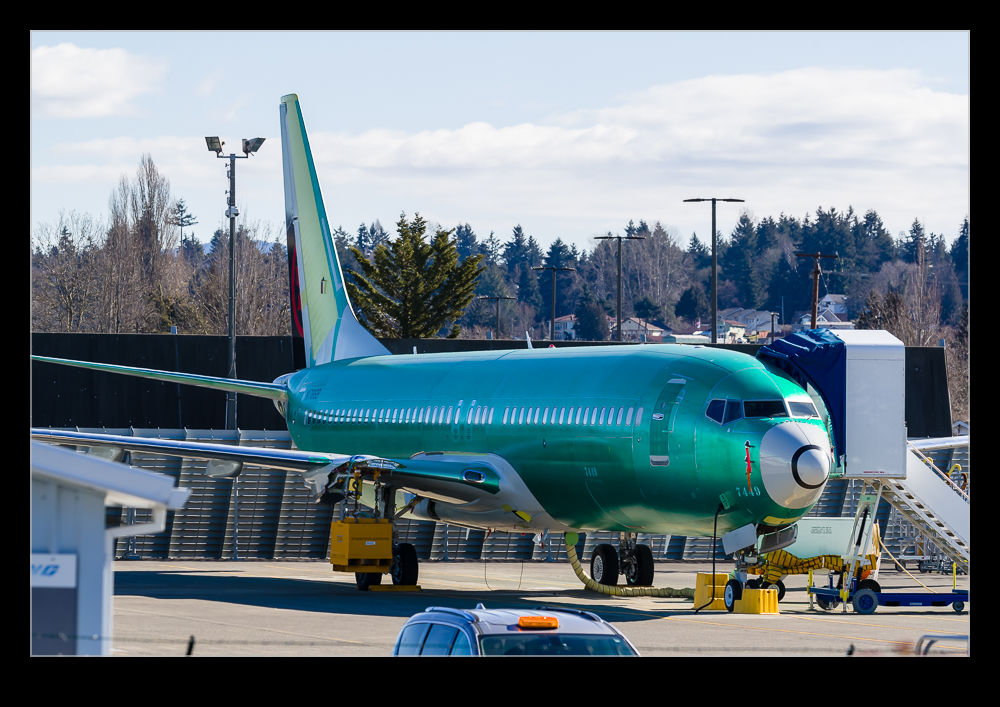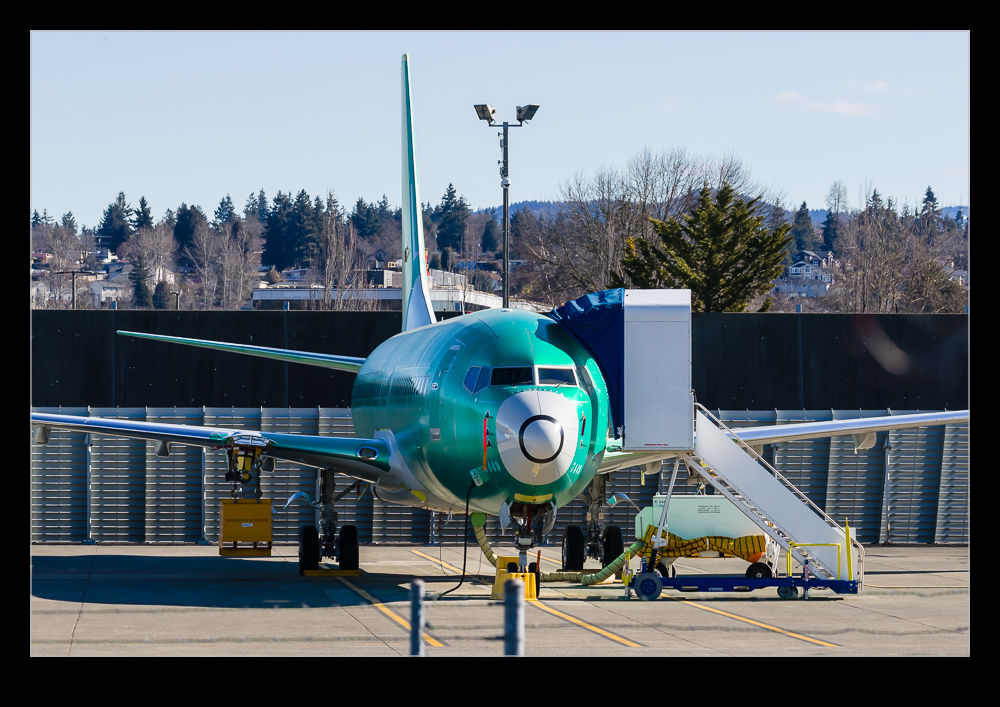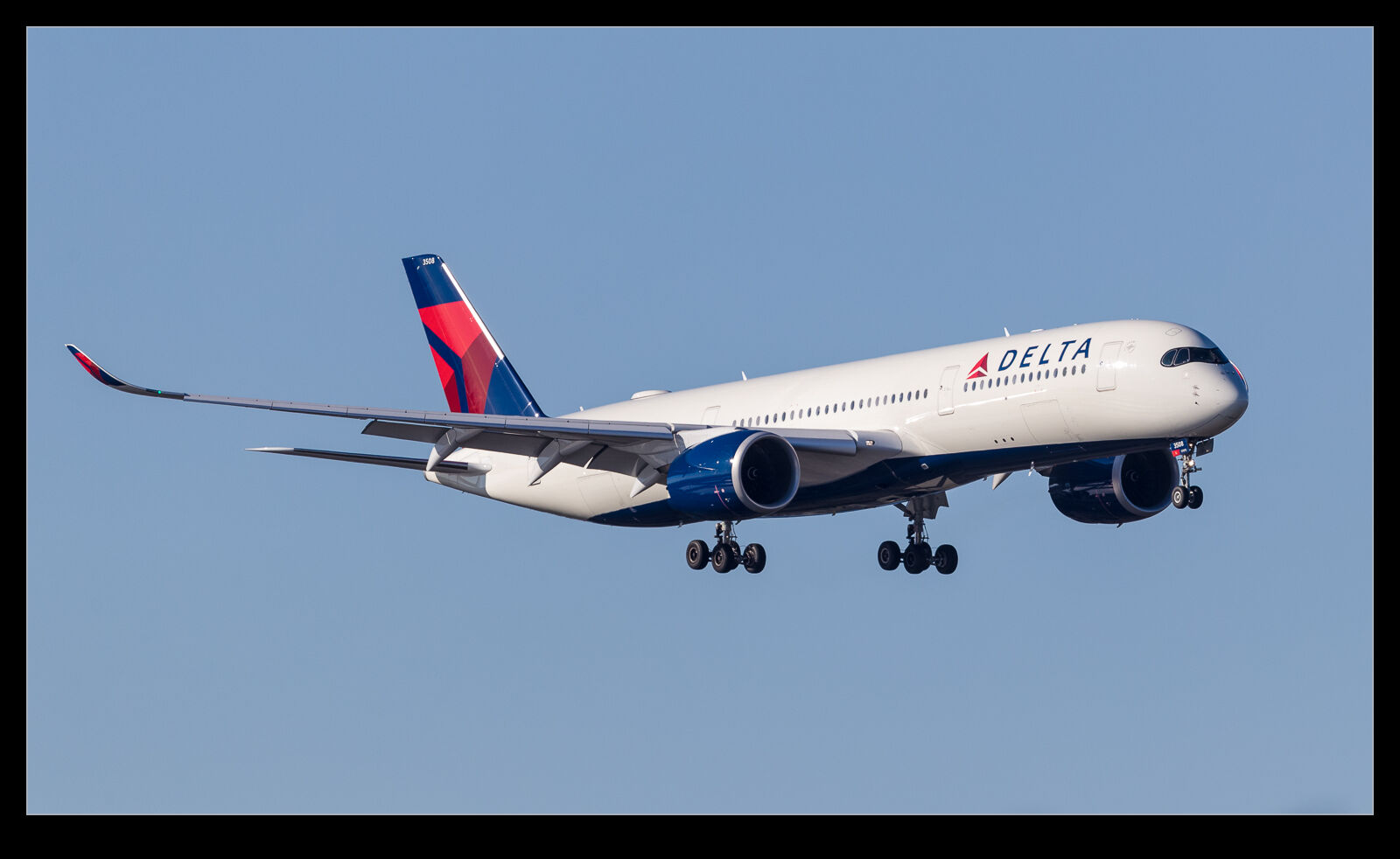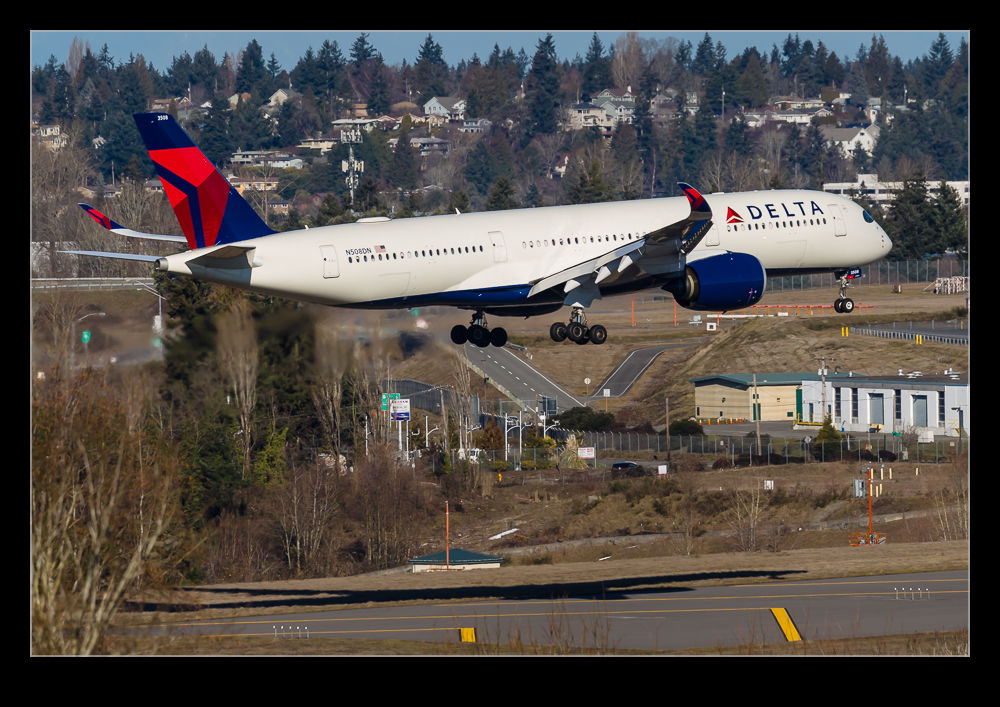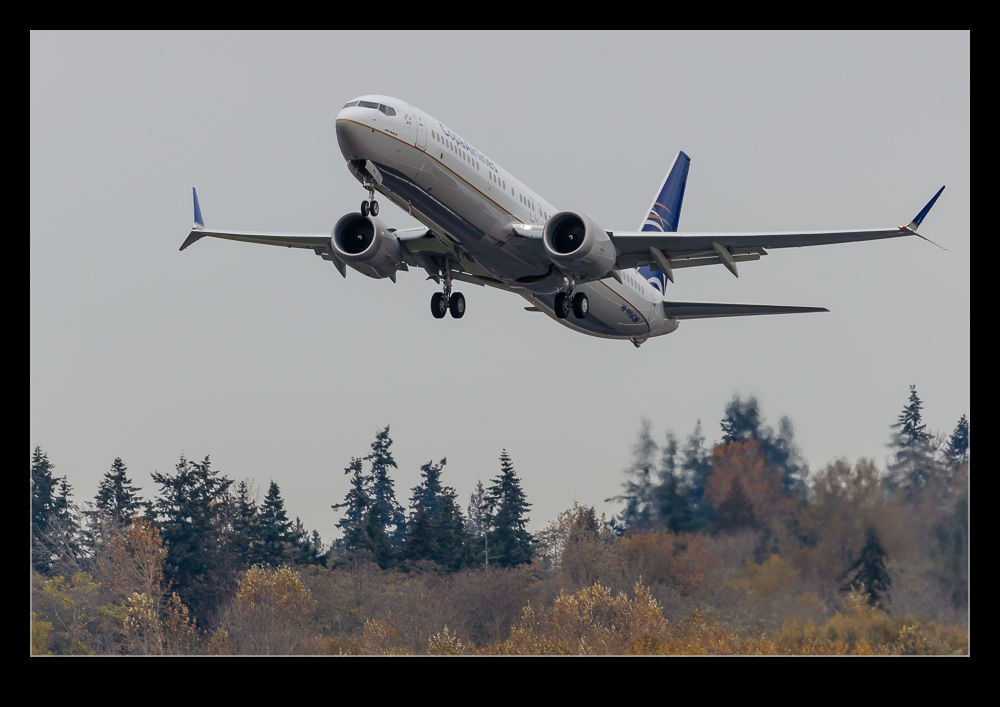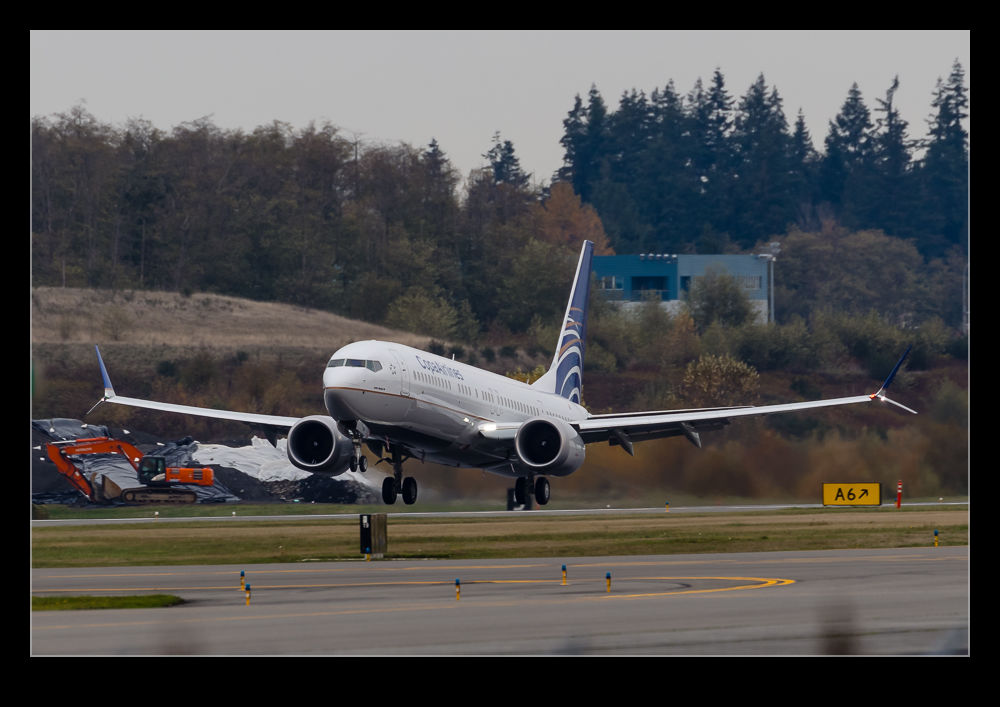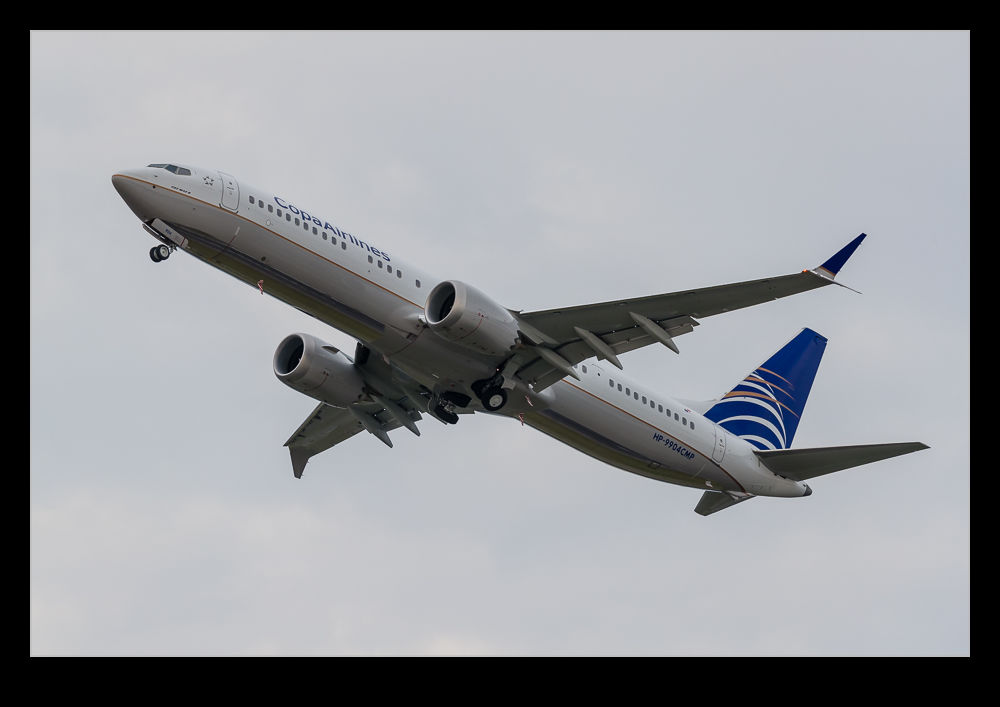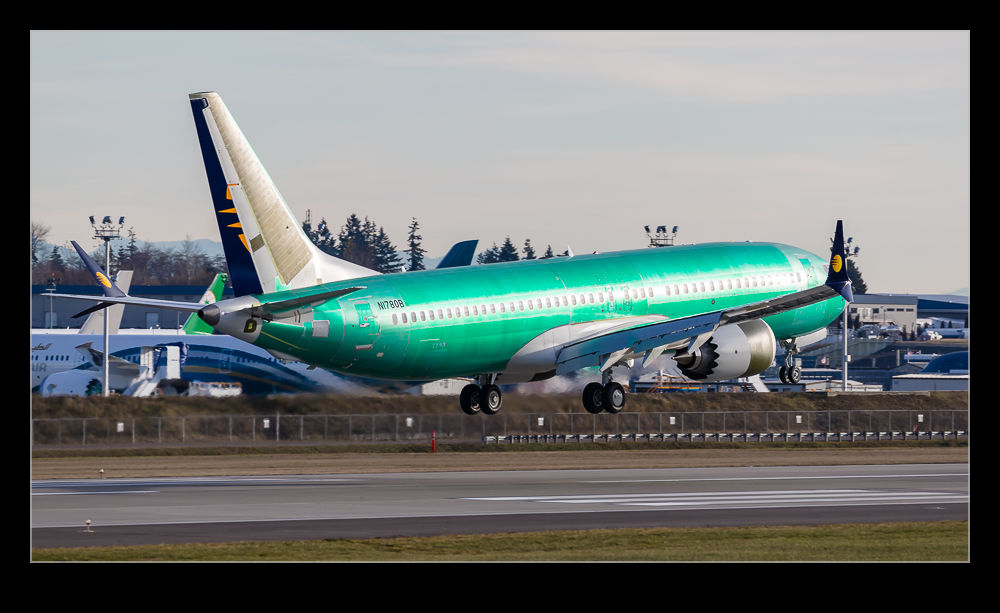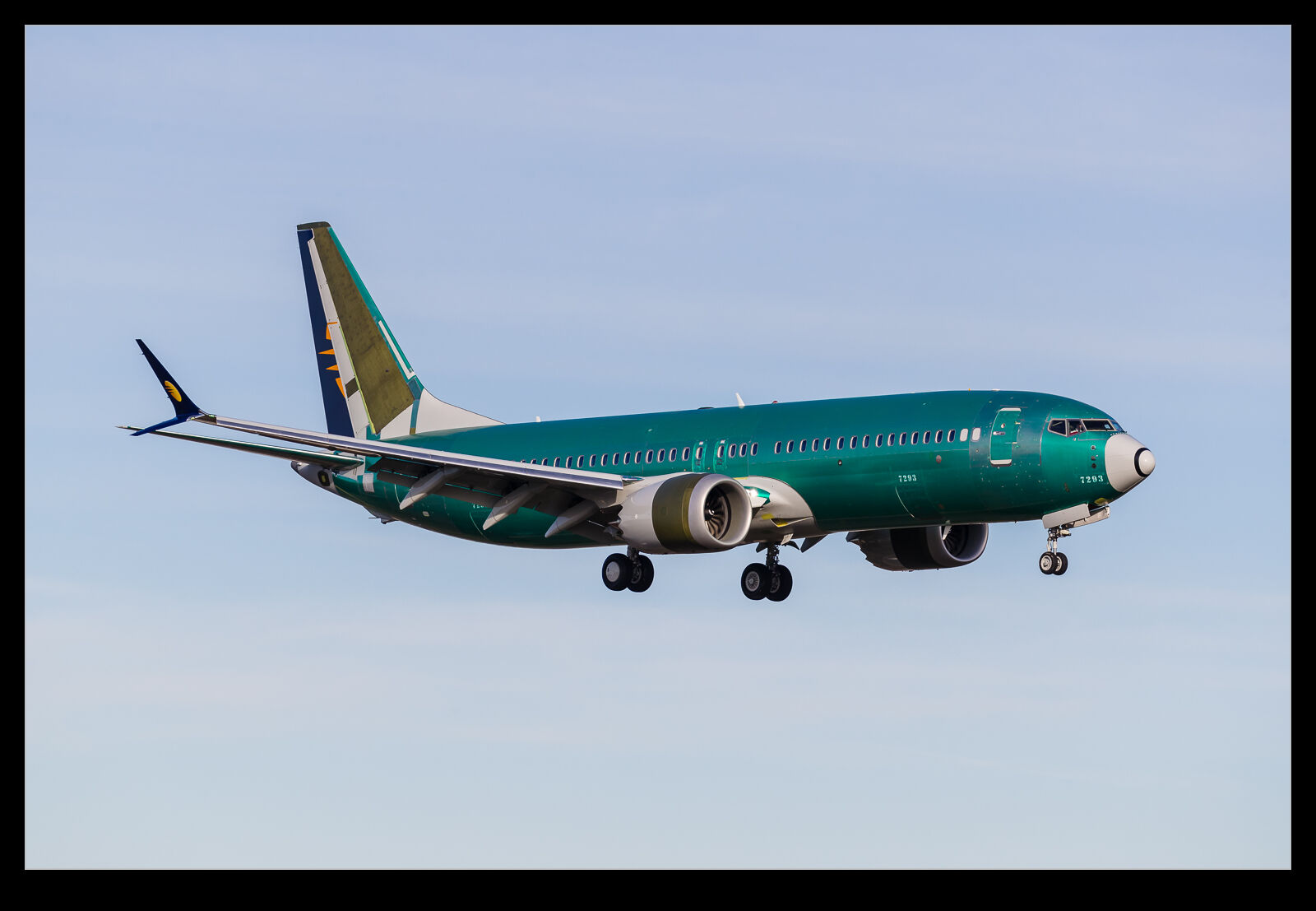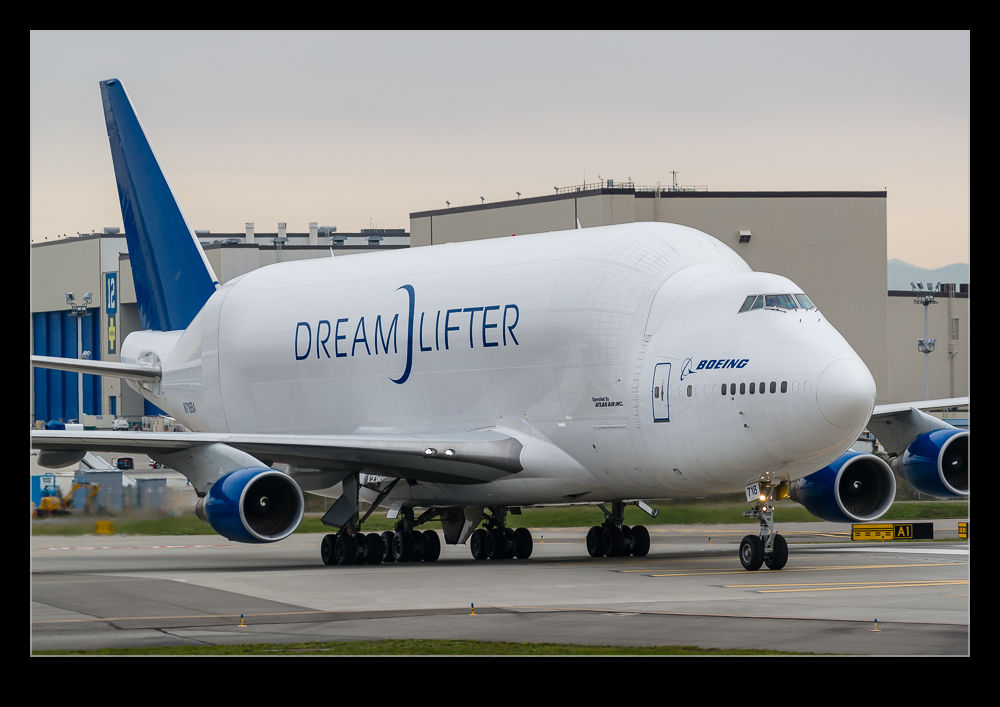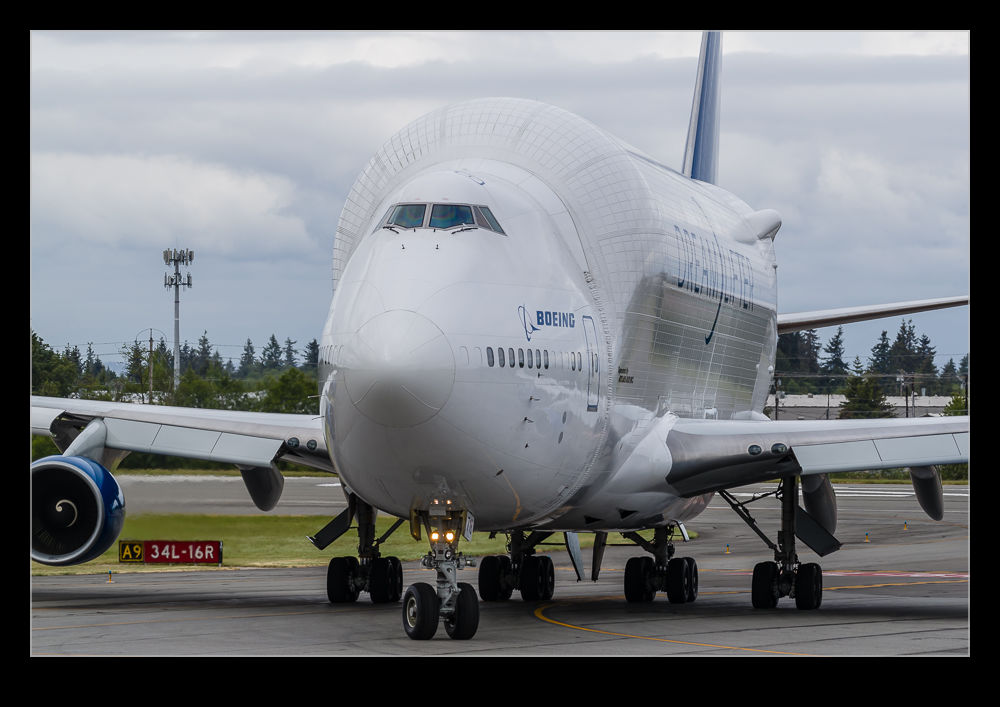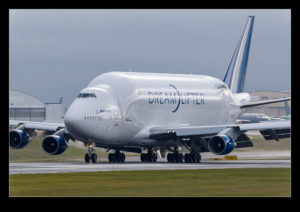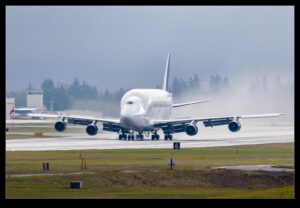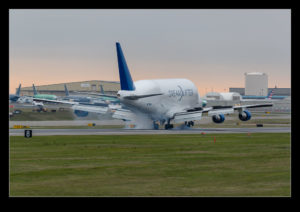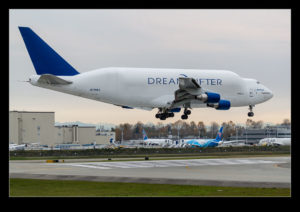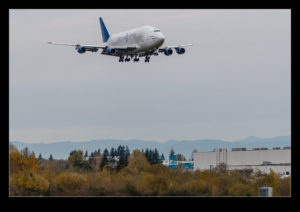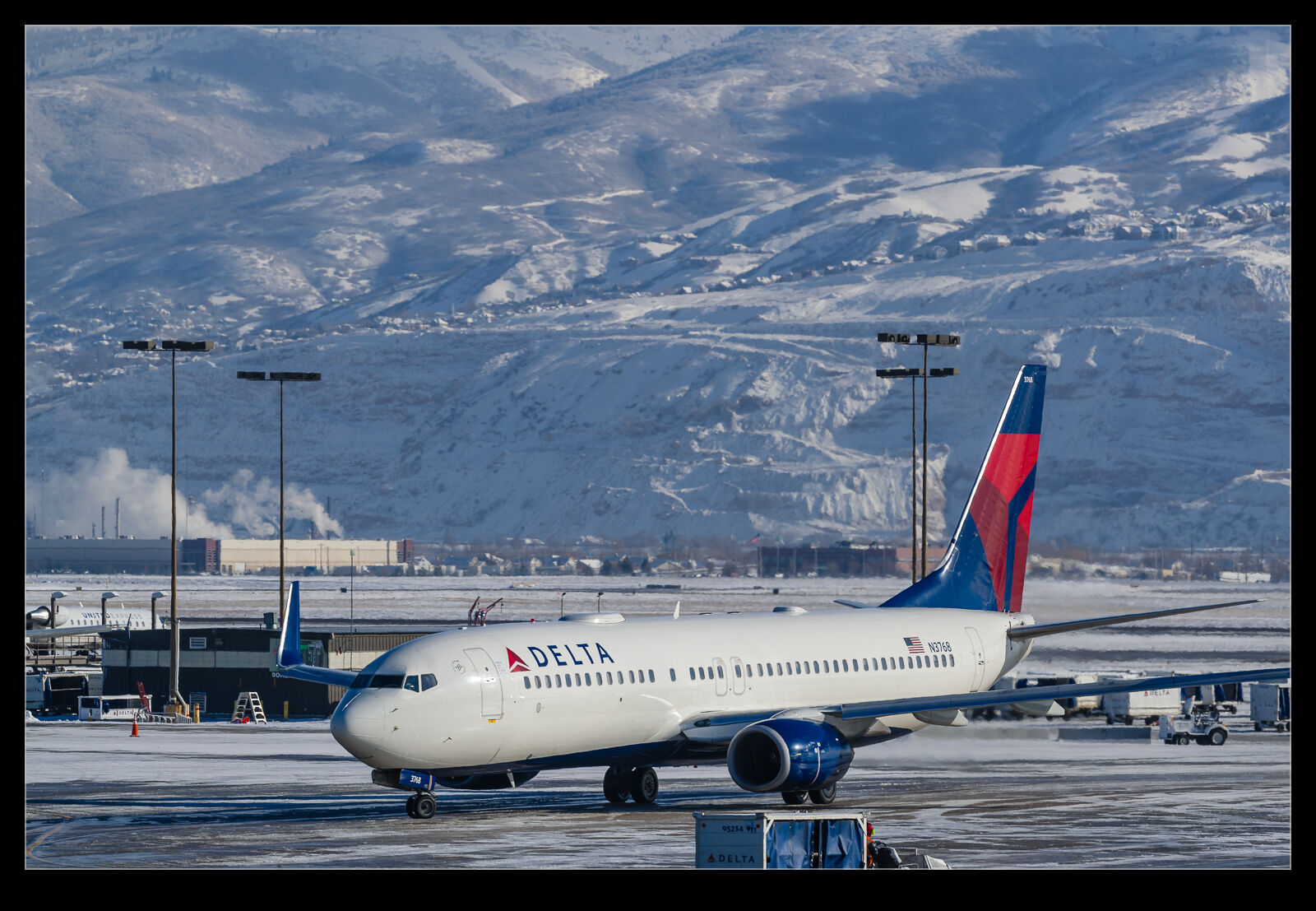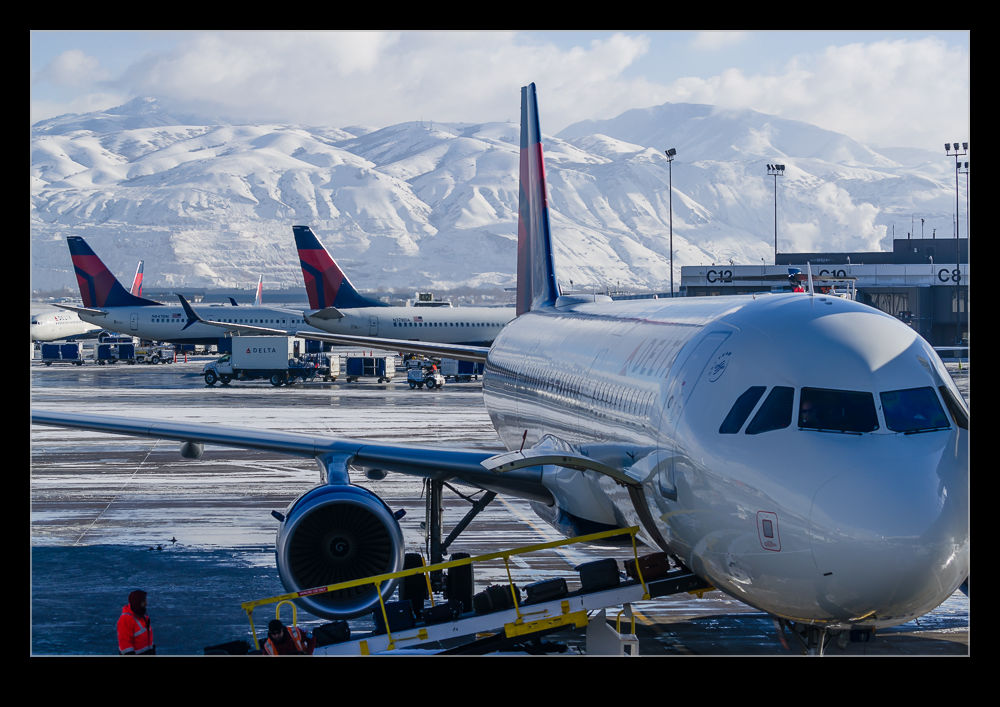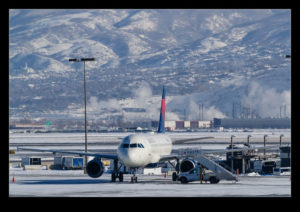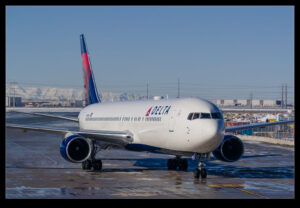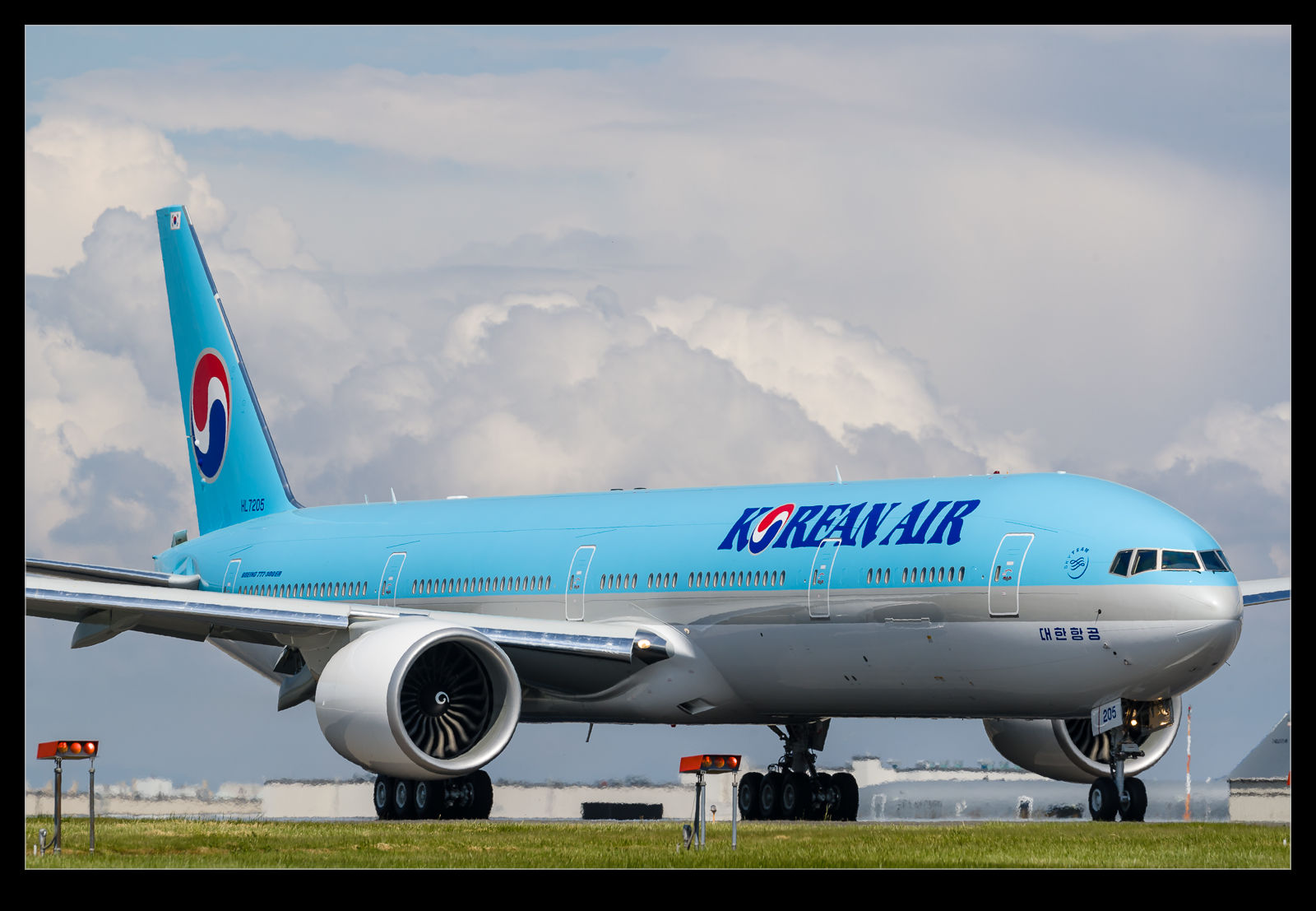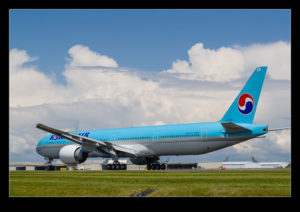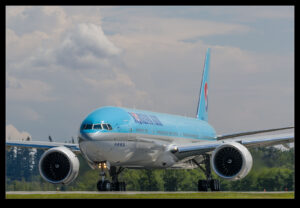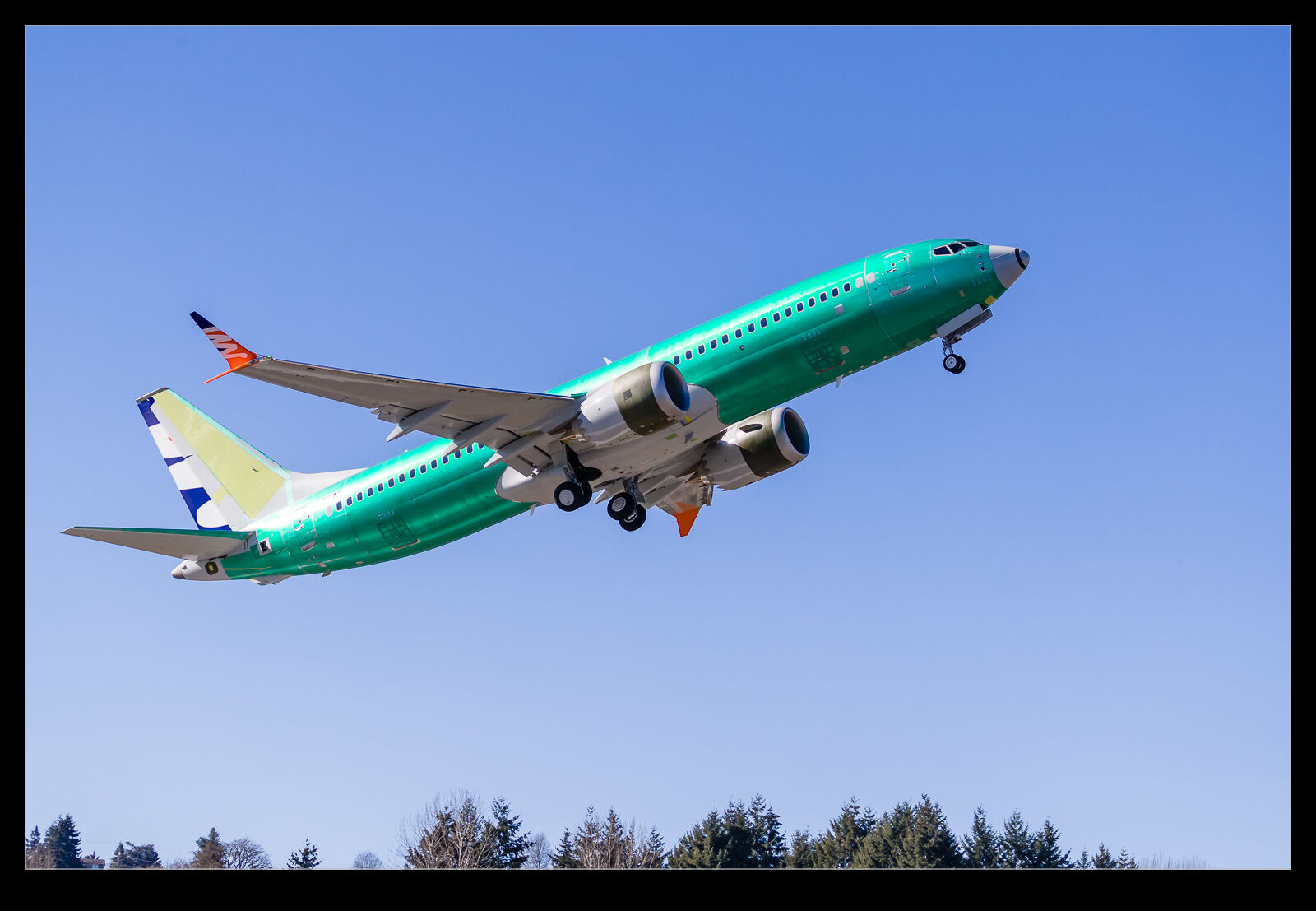 I stopped off at Renton one Sunday morning to see what was on the flight line. (This was prior to the groundings after the Ethiopian Max 8 crash.) There was a first flight showing up on the flight plan so I kept an eye out for any sign of activity as I walked along the park trail. Sure enough, the sound of an engine start reached me when I was down near the bridge between the factory and the flight line. This is a bit far away from where I would want to be to photograph the take off but this is a first flight. There is plenty to check before they go flying unlike a regular flight, so time was on my side.
I stopped off at Renton one Sunday morning to see what was on the flight line. (This was prior to the groundings after the Ethiopian Max 8 crash.) There was a first flight showing up on the flight plan so I kept an eye out for any sign of activity as I walked along the park trail. Sure enough, the sound of an engine start reached me when I was down near the bridge between the factory and the flight line. This is a bit far away from where I would want to be to photograph the take off but this is a first flight. There is plenty to check before they go flying unlike a regular flight, so time was on my side.
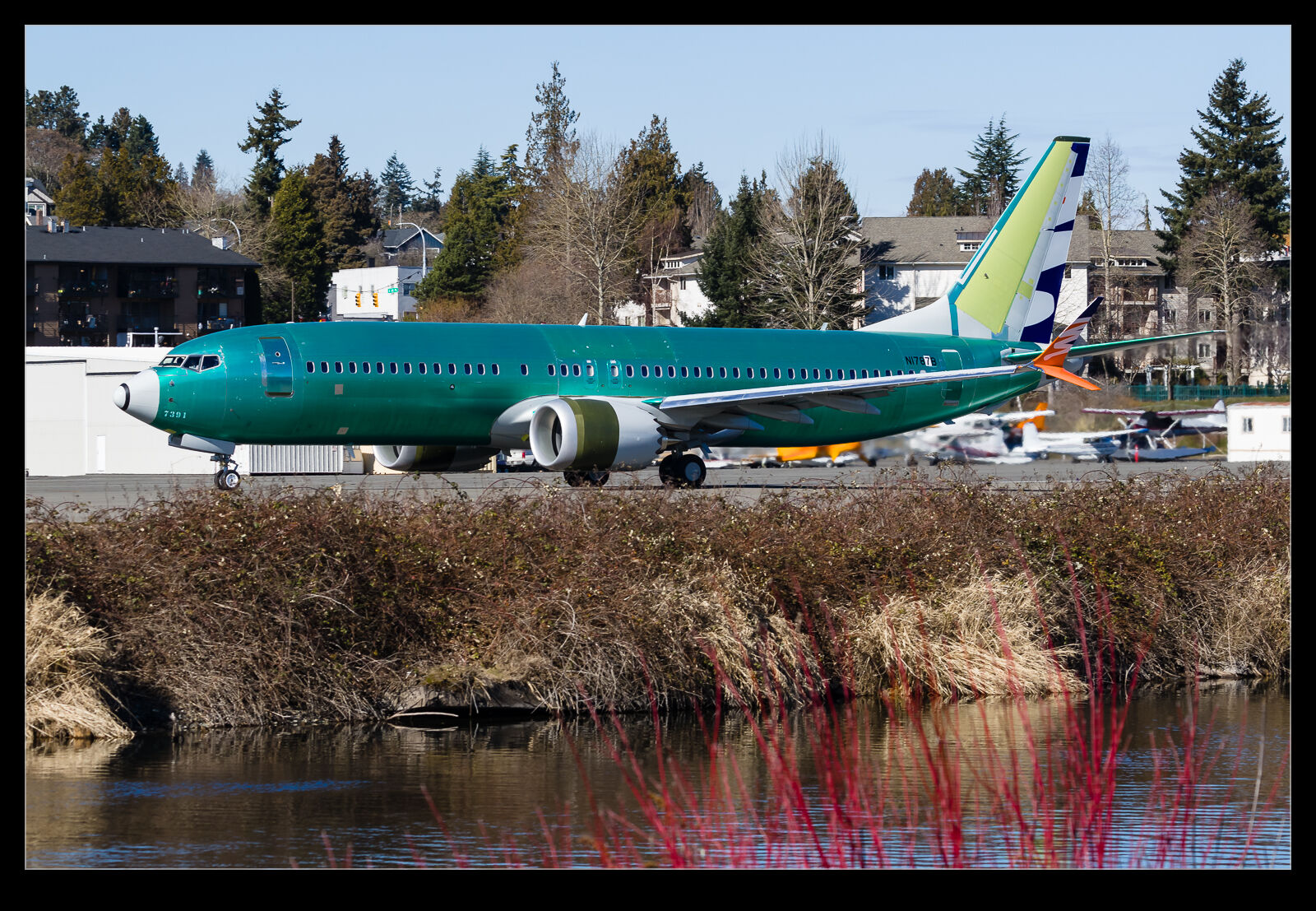 I made my way back along the river in plenty of time for the jet to move. Prior to flight they accelerate and brake to a stop. They did this along the runway the opposite direction to that in which they planned to take off so they actually taxied up past me, turned and accelerated before turning again to make the actual take off. This gave me plenty of views of the unpainted jet. They climbed away and then redeployed the gear, possibly to cool off the brakes a bit. They then turned off on their departure heading. Moses Lake will have been part of the test plan but the flight will have ended at Boeing Field.
I made my way back along the river in plenty of time for the jet to move. Prior to flight they accelerate and brake to a stop. They did this along the runway the opposite direction to that in which they planned to take off so they actually taxied up past me, turned and accelerated before turning again to make the actual take off. This gave me plenty of views of the unpainted jet. They climbed away and then redeployed the gear, possibly to cool off the brakes a bit. They then turned off on their departure heading. Moses Lake will have been part of the test plan but the flight will have ended at Boeing Field.


